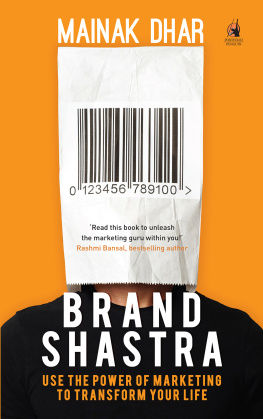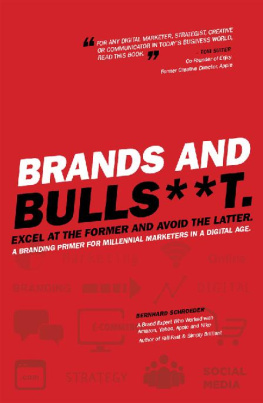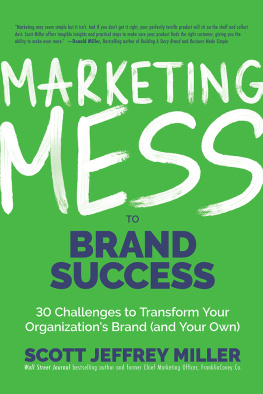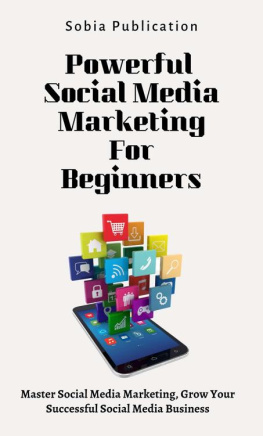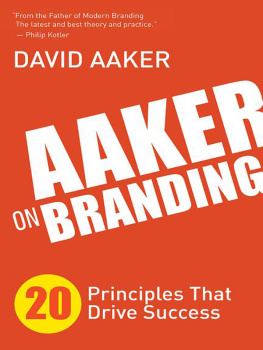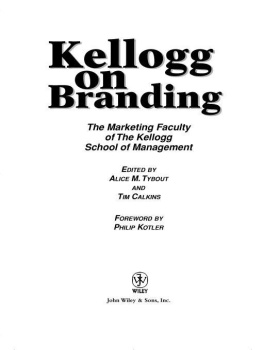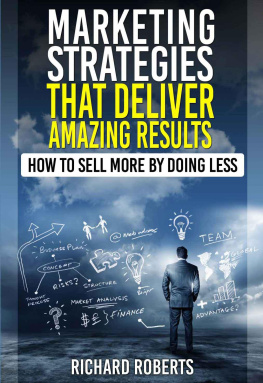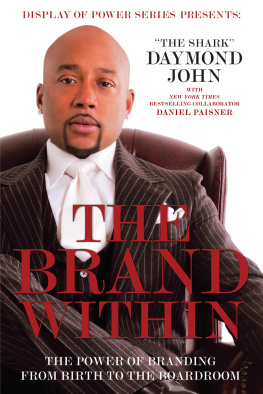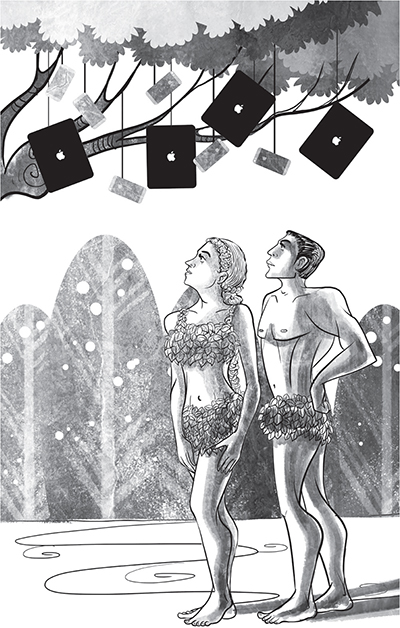Mainak Dhar is an alumnus of the Indian Institute of Management, Ahmedabad, and has spent over two decades in the corporate sector. He began his career with Procter & Gamble, spending close to eighteen years there in marketing and general management roles in India and across the AsiaPacific region. In early 2014, after fifteen years abroad, he moved back as the CEO of the India operations of a major multinational consumer products company. A self-described cubicle-dweller by day and writer by night, Mainak is also the author of over a dozen books, some of which have been bestsellers and have been translated into several languages. When hes not at work or spending time with his wife, Puja, and son, Aaditya, he can usually be found thinking of, or working on, his next book. Learn more about him and contact him at www.facebook.com/AuthorMainakDhar.
Preface
F rom time immemorial when Adam was tempted to reach for the apple on the Tree of Knowledge to a more-present time when we are swayed by 140-character exhortations on social media to vote for one party over another, a particular power has been exerting its influence on how we make choices in our lives. The answer may surprise you.
That power is marketing.
Not the sort of marketing youd expect to study in business school, but marketing as a set of postulations, in its core essence, as the study of human behaviour and perceptions and how to influence them. All of us intuitively understand and wield the power of marketing every day, whether we realize it or not. Brand Shastra distils some of the core principles of marketing and shows how their application in everyday situations can help each of us make every single day of our lives a little bit better. From losing weight to executing a better worklife balance to how we incentivize the right behaviour in our children, there are lessons and insights in this book that youll find yourself relating to and applying in all aspects of how you lead your life.
That connection is what has made me love my career in the consumer products industry and has kept me energized and eager to learn even after twenty years. It has meant that my work, while indeed being about building brands and businesses, helps me understand how people think and work, and in turn helps me become a better person. At a very personal level, marketing for me is about using an understanding of others to make ourselves more empathetic, more effective and have a more positive impact on those around us.
That was what motivated me to write this book, because I want to show how applying some basic concepts of marketing can help us understand the world around us better, and perhaps influence it to meet our needs. You dont need to be a marketer or student of marketing to read this. Indeed, I suspect youll enjoy it more if you arent burdened with concepts and theories. All you need is an open mind and curiosity to see how the world around us isnt all happenstance and destiny, how so many of our choices are shaped by marketing and how, by being plugged into that, you can retake control of some of those reins.
Combining the business and branding experience of a CEO with the storytelling ability of a novelist, I have tried to craft Brand Shastra as a unique book that will stimulate and inspire you to make those connections of your own.
1
Adams Apple to Acche Din
A Brief History of Marketing
I n the beginning, there was lack of awareness.
Thats probably not how youve heard the beginning of human history described. But in many ways one could argue that is how it all began. All of us know the story of Adam and Eve, placed in the idyllic, uncorrupted Garden of Eden by God. They were free to do all they wanted, other than of course sample the fruit from the Tree of Knowledge. Then came the first marketer of them allSatanand he did what great marketers have done ever since then: Make what has been in front of us seem suddenly desirable. In this case, from Adams point of view, both the apple and Eve.
And so the apple that had been there all along suddenly became not just any apple, but the Forbidden Fruit. It was a feat of branding that would make many modern marketers proud.
So awareness turned to desire, and desire to trial.
The rest, as they say, is history. Our history; one where we have been made to desire or loathe things, to reject or accept trends, based on how our perceptions towards them have been shaped and influenced. It is through that long history of marketing that the thread of our civilization has been woven. In case youre wondering where marketing fits into all this, lets step back a bit and understand what marketing really is.
When I was in business school at the Indian Institute of Management, Ahmedabad, more than two decades ago, being introduced to marketing through case studies and textbooks, I might have been forgiven for thinking that marketing was all about constructs and theories, things academicians wrote books about and whose application was limited to the world of business. Since then I have spent two decades on the front lines of marketing and general management in consumer product companies. This experience has made me realize that marketing is both much simpler and infinitely more complicated. It is simpler because, at its core, marketing has very little to do with theories and formulas. Marketing is about something each and every one of us can relate to and understandhuman perceptions, motivations and behaviour. From a child who fakes a tantrum to get what he wants, to a young man who professes his undying real love to get the object of his affection into bed, to the employer who comes up with different employee-engagement programmes to get employees to be more loyal and committed, we are all wired to understand peoples motivations and how to influence their behaviour to meet our needs.
That understanding and shaping of peoples perceptions and behaviour, after all, is what any marketer does, whether its making you feel a bottle of sugar-filled soda somehow represents your youthfulness or whether your mobile phone being represented by a half-eaten fruit or a rotund robot represents the kind of person you are. When I say marketing is infinitely more complicated, it is because there is perhaps nothing more difficult to understand than human motivations and needs. We are fickle, we change, and what we find desirable today becomes old news tomorrow. Thats why professional marketers spend years and millions in research funding trying to understand consumers and understanding how to structure approaches to winning over these consumers. That is also perhaps why I love marketing. Its not just about solving problems in the world of business, but instead its about the here and now, about everyday people making everyday choices. Ive found that understanding the broad concepts of marketing, such as how to position and promote a brand, can unlock something incredibly valuable, much more satisfying than just selling a brand or product. It brings us closer to understanding peoplean understanding of how perceptions, memories and behaviour intersect to drive so many of our day-to-day life choices and help us relate to those around us.

